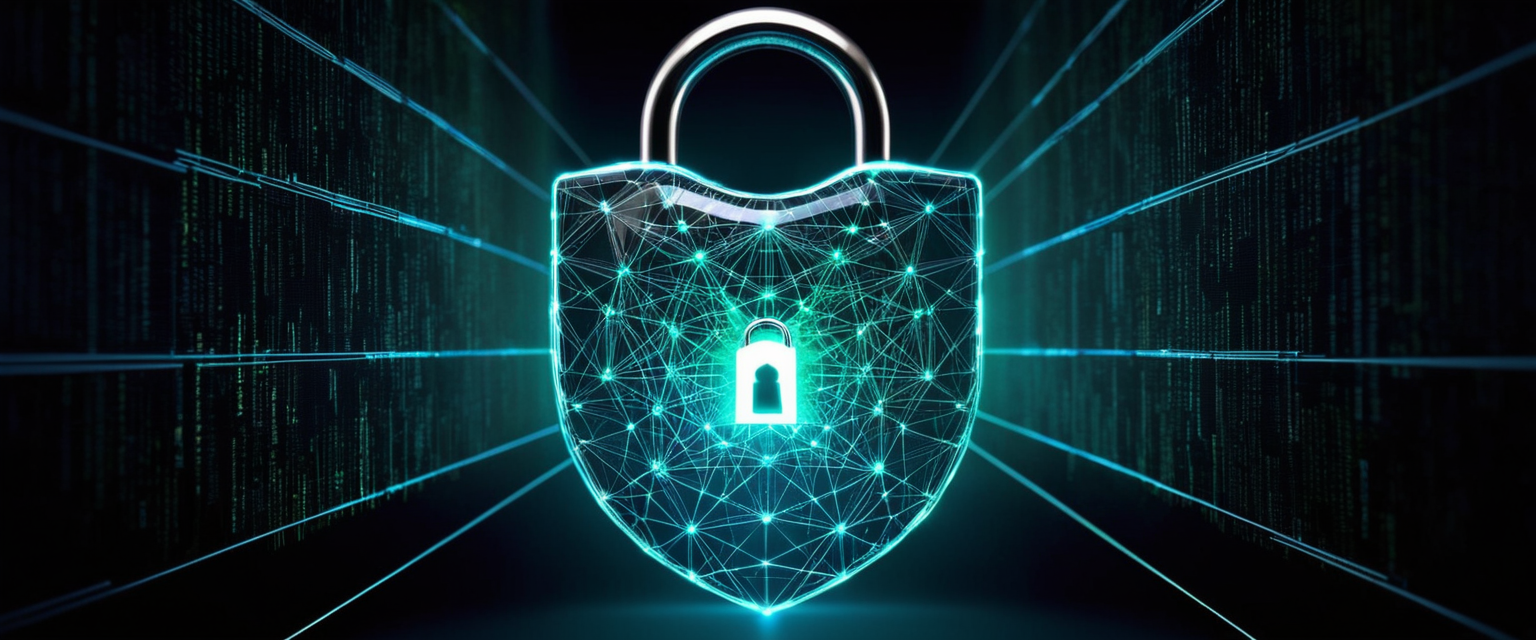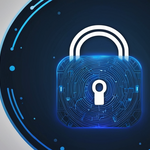
Proton VPN maintains a strict no-logs policy that represents one of the most extensively verified privacy commitments in the virtual private network industry, with multiple independent audits confirming that the service does not retain records of user activity, connection metadata, browsing history, IP addresses, or any personally identifiable information that could compromise user privacy. This comprehensive examination explores the technical architecture, legal framework, independent verification mechanisms, and real-world testing that substantiate these claims, while also addressing nuanced distinctions regarding data collection for abuse prevention and the important differences between Proton VPN’s privacy protections and those offered by related Proton Mail services.
Understanding Virtual Private Networks and the Significance of Logging Policies
When a user connects to the internet without a VPN, their internet service provider, websites they visit, and potentially government authorities can monitor or track their online activity through various technical means including IP address logging, DNS query inspection, and traffic analysis. A virtual private network functions by routing all internet traffic through an encrypted tunnel to a remote server, effectively positioning the VPN provider as an intermediary that could theoretically observe all user activity. This unique position creates both tremendous power and tremendous responsibility, as the VPN provider becomes the custodian of sensitive information about user browsing habits, communications patterns, and digital behavior.
For practical protection, see our IP protection feature feature.
Most reputable VPN providers address this power imbalance by implementing no-logs policies that commit the service to not retaining any records of user activity. However, claims about no-logs practices have become increasingly common in VPN marketing, and not all such claims withstand independent scrutiny. Some VPN providers make no-logs claims while actually retaining substantial amounts of user data, while others maintain that users should verify claims independently rather than simply accepting corporate marketing statements. This reality makes independent verification of no-logs claims extraordinarily valuable to consumers attempting to assess which VPN services genuinely prioritize privacy.
Proton VPN’s Explicit No-Logs Policy and Scope of Commitments
Proton VPN’s no-logs policy explicitly commits the service to not recording specific categories of user information that could reveal browsing activity or personal identity. The company states unambiguously that it does not log which websites users visit, does not record traffic or the content of any communications, does not log user IP addresses, does not record session lengths, and does not log or track any location-based information. This comprehensive commitment extends across all user subscription tiers, meaning that both free and premium users receive identical privacy protection in terms of activity logging.
The scope of this policy becomes particularly significant when compared to other privacy-focused services operated by the same parent company. Proton Mail, the encrypted email service operated by the same entity (Proton AG), functions under a different legal framework and has been compelled under Swiss court orders to log IP addresses in specific criminal investigations. This distinction is crucial for users to understand: Proton VPN operates under a favorable legal framework that imposes no mandatory retention or logging requirements, whereas Proton Mail operates under different regulations that can require IP disclosure in criminal investigations. Proton VPN’s privacy protections thus represent a categorically different commitment than those offered by the company’s email service.
For practical protection, see our browsing tracks scanner feature.
Technical and Organizational Implementation of Privacy Protection
Proton VPN implements its no-logs commitment through multiple technical and organizational mechanisms that work in concert to ensure no user-identifiable data or activity information can be collected or retained. All Proton VPN servers operate on bare-metal hardware that Proton AG owns and operates directly, eliminating dependence on third-party cloud infrastructure providers that might retain data through their systems. Every server across the entire Proton VPN network utilizes full-disk encryption, ensuring that even if a server were somehow compromised or seized, attackers could not access the encryption keys necessary to decipher any stored information.
Data required for essential system maintenance and troubleshooting is secured using this same full-disk encryption on all servers under Proton’s exclusive control. The company uses robust encryption standards for all data, implementing AES-256 encryption for symmetric ciphers, RSA-4096 for key exchanges, and HMAC SHA-384 for hash authentication. All Proton VPN applications are released as fully open-source code that anyone can review, inspect, and verify for hidden logging mechanisms or privacy-compromising functionality. This transparency allows security researchers, privacy advocates, and technically sophisticated users to confirm that the client applications contain no hidden data collection mechanisms.
Organizational controls further reinforce the technical commitment to no-logs practices. Proton VPN employs formal change management processes that incorporate dual-control principles (also called the four-eyes principle) to ensure that any modifications to logging-related configurations require approval from multiple qualified employees. Automated processes detect and generate alerts if anyone attempts to make unauthorized configuration changes that could enable logging, creating a technical safeguard against accidental or malicious circumvention of no-logs policies. Production servers maintain standardized configurations across all geographic regions and subscription levels, ensuring that the same privacy-protective settings apply universally rather than varying by location or user tier.
Independent Third-Party Audits and Verification Results
Proton VPN has commissioned independent security audits of its no-logs policy from Securitum, a leading European security-auditing company, on an annual basis beginning in 2022 and continuing through 2025. These audits represent the most rigorous form of external verification available in the VPN industry, involving on-site assessments of production infrastructure, server configurations, and operating procedures conducted by senior security consultants with expertise in privacy and data protection.
The most recent 2025 audit by Securitum, conducted from August 18-20 at Proton AG’s headquarters in Zürich, involved six person-days of focused technical evaluation by two senior security consultants. The auditors examined production servers, reviewed configuration files, interviewed Proton’s senior engineering team, and assessed operating procedures to verify that the deployed infrastructure contains no mechanisms capable of collecting or retaining user-identifiable data or internet activity logs. The resulting report concluded with unambiguous language: “The technical evidence reviewed showed no instances of user activity logging, connection metadata storage, or network traffic inspection that would contradict the No-Logs policy. Furthermore, the audit verified the implementation of robust administrative and technical controls, including automated configuration management and a formal dual-control change process, which are designed to ensure the continuous integrity of the no-logging environment”.
Securitum’s 2024 audit reached substantially identical conclusions after examining the same infrastructure and processes. The 2023 audit similarly confirmed that Proton VPN maintains compliance with its no-logs policy, and the initial 2022 audit established the baseline verification of these practices. Notably, these audits explicitly covered both free and paid user accounts, confirming that no additional logging occurs for either segment. The audits specifically addressed whether user activity is tracked or logged on production VPN servers, whether connection metadata such as DNS queries or session timestamps are logged, whether network traffic is inspected, and whether information associating specific users with specific VPN servers is recorded.
Securitum’s detailed assessment examined whether Proton VPN’s no-logs policy is applied uniformly across all servers in all geographic regions and to all subscription tiers, whether automated processes detect unauthorized configuration changes, whether formal change management procedures incorporating dual-control are enforced for logging-related configurations, and whether active configuration files contain any enabled logging directives. The comprehensiveness of these audits extends well beyond simple statements of compliance, instead involving deep technical inspection of actual systems, procedures, and configurations. Securitum’s track record includes audits of other privacy-focused services including DuckDuckGo VPN, lending credibility to their methodology and conclusions.

Swiss Legal Framework and Absence of Mandatory Logging Requirements
Proton VPN’s ability to maintain a genuine no-logs policy benefits substantially from Switzerland’s legal framework, which provides exceptional data protection and does not impose mandatory data retention or logging obligations on VPN services. This distinguishes Proton VPN from VPN providers based in jurisdictions with mandatory logging requirements, where even companies genuinely committed to privacy would be legally compelled to maintain logs on government demand. Within Switzerland’s current legal framework, Proton VPN has no logging obligations and cannot be forced to begin logging user data through standard government orders.
This Swiss advantage represents a crucial distinction in the global VPN landscape. In most other countries, VPN providers can be compelled to log through government orders even if they maintain no-logs policies by default. However, Switzerland’s legal position outside the European Union and its non-participation in mass surveillance alliances creates an environment where privacy-protective policies can be maintained independently of political pressure or surveillance mandates common in other jurisdictions. Switzerland’s strong data protection laws, particularly the Federal Act on Data Protection, make the extraction of user data an expensive and cumbersome process that protects companies maintaining genuine privacy commitments.
Protect Your Digital Life with Activate Security
Get 14 powerful security tools in one comprehensive suite. VPN, antivirus, password manager, dark web monitoring, and more.
Get Protected NowThe Swiss legal framework also differs notably from regulations governing other Proton services. While Proton VPN operates without logging requirements, Proton Mail operates under different Swiss regulations that can require IP disclosure in criminal investigations. This distinction reflects that Switzerland applies different legal standards to different types of online services. Understanding this difference is essential for users evaluating Proton’s privacy commitments across its service portfolio.
Real-World Legal Testing and the 2019 Court Case
Perhaps the most compelling evidence of Proton VPN’s genuine no-logs commitment comes from a real-world legal test in 2019, when authorities requested that Proton VPN turn over logs to help identify a specific user involved in an investigation. A data request from a foreign country was approved by the Swiss court system, establishing legal authority for Proton VPN to comply with the request. However, Proton VPN was unable to comply because the requested logs simply did not exist.
This 2019 case represents a watershed moment in VPN privacy history because it provides definitive proof that Proton VPN’s no-logs claims hold up under actual legal pressure rather than representing mere marketing rhetoric. If Proton VPN actually maintained logs but claimed not to, the company would have faced legal liability for failing to comply with a lawful court order. Instead, the company was able to truthfully state that no logs existed to turn over, and this explanation was accepted by the court system. The ability to fail to comply with a legal data request because no incriminating evidence exists represents the strongest possible verification of a no-logs policy.
This contrasts sharply with other privacy services that have been compelled to turn over data under court order. When Proton Mail received a court request regarding a French climate activist in 2019, the company logged and provided the user’s IP address, leading to the activist’s arrest. This incident, while controversial, actually underscores how different Proton VPN’s legal framework and operational practices are compared to Proton Mail. The VPN service’s inability to comply with a legally binding court order in 2019 demonstrates that the distinction between the two services is not merely theoretical but reflects genuine differences in what data is retained.
Transparency Reports and Legal Request Statistics
Proton VPN maintains a public transparency report that documents all legal requests for user information received from authorities and Proton VPN’s response to each request. This radical transparency allows anyone to assess how often authorities attempt to obtain user data and whether Proton VPN has complied with such requests. The transparency report demonstrates that all legal requests have been denied because Proton VPN maintains no logs to turn over.
From January 2019 through June 2025, Proton VPN received 29 legal orders requesting user information in 2025 (to June 30), 53 in 2024, 60 in 2023, 80 in 2022, and 121 in 2021. Across this entire period spanning multiple years and hundreds of legal requests, Proton VPN denied 100 percent of all requests. The transparency report explicitly states: “All requests have been from authorities trying to identify who was connected to a specific server at a specific time based on a server IP and timestamp, which we cannot do”.
This inability to fulfill requests for connection information reflecting who used specific servers at specific times provides evidence that Proton VPN maintains no data correlating specific users with specific servers they connected to during specific time periods. Such correlation data would be essential for most law enforcement investigations attempting to identify a particular user, yet Proton VPN’s complete inability to provide this information across years of requests suggests the data genuinely does not exist. The consistency of this pattern—requests universally denied across multiple years—indicates that Proton VPN’s claim not to maintain such logs reflects operational reality rather than selective or variable practices.
Notably, under Swiss law, Proton VPN notes that a “Warrant Canary” is not meaningful because under Swiss law, the target of a surveillance or data request must always be eventually notified and given the opportunity to contest the data request. This legal protection for data subjects represents another advantage of Proton VPN’s Swiss jurisdiction, as it prevents the sort of secret surveillance that would be possible under the legal systems of other nations. This transparency requirement becomes another check on potential abuse of Proton VPN’s systems, as users can potentially discover and challenge data requests made about them.
Distinction Between No-Logs Commitments and Abuse Prevention Monitoring
An important nuance in Proton VPN’s privacy practices involves the distinction between the company’s commitment not to log user browsing activity and its separate commitment to preventing service abuse. Some sources have suggested or claimed that Proton VPN engages in real-time traffic monitoring that could contradict no-logs claims, but this represents a misunderstanding of what constitutes logging in the context of abuse prevention versus privacy violation. Proton VPN’s abuse prevention systems monitor traffic patterns to identify potential spam, malware distribution, or other service violations without maintaining persistent logs of individual user browsing history.
This distinction parallels postal service operations: a mail carrier does not open and read every letter being delivered (equivalent to comprehensive logging), but the postal service would investigate packages reported to contain threats or illegal materials (equivalent to targeted abuse prevention). Similarly, Proton VPN’s abuse prevention mechanisms represent targeted interventions in response to detected abuse rather than comprehensive surveillance of all user activity. These are fundamentally different practices from maintaining logs of user browsing destinations, visited websites, or session durations.
The company’s anti-abuse team works to prevent bulk account registrations used for spam, account takeovers by malicious actors, and spam distribution from Proton accounts. These prevention mechanisms are necessary to maintain service quality and legal compliance, as uncontrolled spam or malware distribution would compromise the service for legitimate users and expose Proton to liability. However, such abuse prevention measures are explicitly distinct from maintaining session logs that record user browsing activity, DNS queries, IP addresses, or other metadata that would compromise individual user privacy.

Comparison of Privacy Protections: Free Versus Paid Services
An important question for potential Proton VPN users involves whether the company maintains different data retention practices for free tier users compared to premium subscribers. The independent audits explicitly confirm that no such differentiation exists. Securitum’s audit reports state clearly that the no-logs policy applies uniformly across all servers, in all geographic regions, and to all user subscription tiers. An on-site evaluation at Proton’s Zürich headquarters specifically examined whether server settings differed between free and paid user access, and auditors confirmed that “server settings were the same in all regions and subscription levels, suggesting the same no-logs attitude was applied universally”.
This uniformity of privacy protection across free and paid tiers distinguishes Proton VPN from many competitors. Other “freemium” VPN services often implement compromises in the free tier that fundamentally undermine privacy, including tracking, invasive data collection, speed limitations designed to encourage upgrading, and embedded advertising. Proton VPN’s free tier includes the same strong encryption standards, kill switch feature, DNS leak protection, and no-logs policy as premium tiers. Even free tier users benefit from the same full-disk encryption on servers, open-source applications subject to independent audits, and Swiss privacy protections.
For users on Proton VPN’s free plan, the primary limitations involve server selection rather than privacy protection. Free tier users cannot select which server to connect to but are automatically routed to the best available free server for their location, whereas premium users can manually select from a global network. Free users connect to a more limited number of free server locations, though this has expanded with recent updates that increased free server locations from five countries to ten countries worldwide. However, these limitations involve server access rather than data retention—free users benefit from identical privacy protections as premium subscribers.
Open-Source Code and Community Verification
Proton VPN distinguishes itself by releasing all application code as open-source across all platforms including Windows, macOS, Android, Linux, and iOS. This commitment to open-source development represents a foundational commitment to transparency that allows any security researcher, privacy advocate, or technically sophisticated individual to inspect the application code and verify that no hidden logging mechanisms exist. The open-source approach contrasts with proprietary VPN services that rely on “security through obscurity,” where vulnerabilities may be hidden not only from users but potentially known only to malicious actors who could exploit them secretly.
The company maintains open-source repositories on GitHub where all application code is publicly accessible, including the official Android app, Windows app, iOS and macOS app, Linux app, and browser extensions. Anyone can download this source code, compile applications from source, and verify that the executable applications match the source code, preventing the injection of additional logging or surveillance functionality during the build process. This radical transparency regarding application code represents a commitment to accountability that contrasts with the “security through obscurity” approach taken by proprietary VPN services.
Beyond open-source code, Proton VPN maintains a bug bounty program that rewards security researchers who identify vulnerabilities. This program further extends transparency and accountability by incentivizing the global security community to scrutinize Proton VPN’s implementations and report any discovered weaknesses. The combination of open-source code, bug bounty rewards, and independent third-party audits creates multiple overlapping layers of verification that no hidden logging or privacy-compromising functionality exists in Proton VPN applications.
Advanced Privacy Features and Additional Protections
Beyond the fundamental no-logs commitment, Proton VPN implements additional privacy-protective features that work in concert to prevent various forms of tracking, identification, and surveillance. The Secure Core feature routes traffic through multiple servers located in privacy-friendly countries including Iceland, Sweden, and Switzerland, defending against advanced timing and correlation attacks that other VPNs cannot defend against. These Secure Core servers are located in hardened data centers, physically owned and controlled by Proton, and connected through dedicated network resources, providing additional assurances that no unauthorized monitoring occurs.
DNS leak protection ensures that DNS queries (which reveal which websites users attempt to visit) are resolved through Proton VPN’s own servers rather than leaking to internet service providers or other third parties. This prevents the most common method by which ISPs monitor user browsing activity even when VPN traffic is encrypted. NetShield Ad-blocker functionality blocks ads, trackers, and malicious scripts at the DNS level, preventing connections to tracking and malware domains before they can occur.
The kill switch feature terminates all internet traffic if the VPN connection drops, preventing any data transmission outside the encrypted tunnel that could expose user IP addresses. This protects against the scenario where users accidentally communicate through their ISP when the VPN disconnects due to network instability. Alternative routing automatically finds ways to maintain VPN connectivity when standard connections to Proton’s servers are blocked, routing traffic through third-party services unlikely to be censored. The Stealth protocol disguises VPN traffic as regular HTTPS traffic, helping users bypass VPN detection in networks that actively block VPN protocols.
Controversies and Critical Perspectives
Despite extensive independent verification and transparent operations, Proton VPN and its parent company Proton AG have faced some criticism and raised questions about their privacy practices. The most significant controversy involves Proton Mail (rather than Proton VPN), where the email service logged the IP address of a French climate activist under a Swiss court order, leading to the activist’s arrest. This incident demonstrates that Proton Mail’s privacy protections differ from Proton VPN’s, and that Swiss courts can compel IP logging from email services even though they cannot do so for VPN services.
Some privacy advocates have questioned whether the distinction between Proton Mail’s logging and Proton VPN’s no-logs practices is sufficiently clear to consumers who may assume all Proton services offer identical privacy protection. One source claimed that Proton VPN “lied” about logging, asserting that the service admitted to monitoring traffic “in real time” when abuse reports arise. However, detailed examination of Proton’s statements reveals that the company disclosed traffic inspection for abuse prevention purposes, which represents a different category of activity than maintaining persistent logs of user browsing activity.
Another perspective raised concerns about Proton’s transparency regarding what data gets collected during account creation and signup processes. While Proton VPN maintains a strict no-logs policy for connection data, the company does collect account information including email addresses used for account signup and recovery, payment information for billing, and temporarily retains phone numbers or emails used for human verification to prevent spam account creation. These account-related data collection practices differ from the no-logs policy but represent a distinction between user identification data (necessary for service operation) and user activity data (which Proton VPN does not maintain).
Some critics have suggested that any privacy-focused service must inevitably face pressure from government authorities that could force the company to compromise privacy protections. Notably, Proton has publicly stated that if a proposed Swiss legal revision passes that would require VPN providers to implement mandatory logging, the company would relocate its operations from Switzerland rather than comply with the new requirements. This public commitment reflects the stated priority of privacy protection over business convenience, though whether such a commitment would be maintained if put to actual test remains theoretical.

Regulatory Environment and Future Prospects
Proton VPN’s privacy protections exist within a specific regulatory and legal environment that could potentially change. Switzerland is currently considering potential revisions to its digital security laws that would require VPN and other technology companies to implement targeted logging in response to government requests. Proton VPN has stated publicly that if such changes occur, the company would leave Switzerland rather than comply with mandatory logging obligations, indicating that Swiss jurisdiction is foundational to the business model. This potential regulatory shift represents an existential question for Proton VPN’s privacy commitments.
The regulatory landscape globally is characterized by increasing demands for surveillance capabilities and pressure on privacy-protective services. The EU and United States have at times pursued policies requiring online services to implement monitoring and logging capabilities. Switzerland’s current legal framework represents an exception to these global trends, making it a sanctuary for privacy-protective services. However, the durability of Switzerland’s privacy-protective legal position remains uncertain if the proposed revisions proceed.
More broadly, the VPN industry continues to evolve regarding regulatory pressure, government requests, and competitive dynamics around privacy claims. Proton VPN’s commitment to annual independent audits and transparency reports positions it favorably in an industry where many competitors make privacy claims without objective verification. The company’s willingness to publish audit results in full, maintain public transparency reports, and operate under open-source code creates external pressure on competitors to demonstrate equivalent or superior privacy protections.
Proton VPN’s Log Policy: The Final Verdict
The evidence overwhelmingly demonstrates that Proton VPN maintains a genuine, verifiable no-logs policy backed by technical architecture, independent third-party audits, transparent operations, and real-world legal testing. The service does not maintain logs of which websites users visit, does not record network traffic or communication content, does not retain IP address information, does not document session lengths, and does not track location data. These commitments extend uniformly across all user subscription tiers and all geographic server locations.
Independent audits by Securitum, a leading European security firm, have verified compliance with no-logs commitments on an annual basis from 2022 through 2025, finding no instances of user activity logging or connection metadata storage. The company’s Swiss jurisdiction eliminates mandatory data retention requirements that would otherwise force logging, while the parent company’s public commitment to relocate if Swiss law changes underscores the foundational importance of Swiss privacy law to the business model.
Most compellingly, a 2019 court case in which authorities requested logs to identify a specific user demonstrated that Proton VPN could not comply because no logs existed to provide, proving that no-logs claims represent operational reality rather than marketing rhetoric. The company’s transparency reports documenting that 100% of legal requests across multiple years have been denied further supports the conclusion that user connection data genuinely does not exist.
Critical perspectives regarding Proton’s broader practices merit consideration, particularly regarding the distinct privacy protections offered by Proton Mail versus Proton VPN, and the distinction between legitimate abuse prevention monitoring and privacy-violating activity logging. However, these important nuances do not undermine the fundamental conclusion that Proton VPN maintains and verifies genuine no-logs protections for user browsing activity and connection data.
For users prioritizing privacy protection when using virtual private networks, the available evidence supports the conclusion that Proton VPN’s privacy commitments represent some of the most rigorously verified and transparently documented in the industry. The combination of open-source code allowing community verification, annual independent audits from credible firms, public transparency reports, real-world legal testing, and Swiss legal protections creates multiple overlapping layers of verification that user activity data is not retained. While no security measure is perfect and future regulatory changes could alter this landscape, current evidence demonstrates that Proton VPN’s no-logs claims warrant substantial credibility among privacy-conscious internet users.






